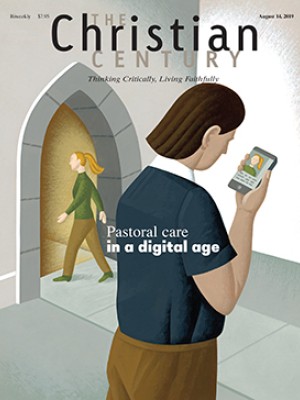August 25, Ordinary 21C (Isaiah 58:9b-14)
So much of human religiosity comes down to a hoax we perpetrate on God.
On the Jewish Day of Atonement (Yom Kippur), the prophetic reading (Haftarah) lands like a stick of dynamite upon the congregation. By late morning, when Isaiah 57:14–58:14 is read, most of us are hungry and thirsty and perhaps a little irritable from fasting. We’re right smack in the middle of the holiest day of the year, a day centered on the hard work of repentance and the joyous possibility of forgiveness, when the words of the prophet come thundering at us, questioning just what it is we think we’re doing in God’s house. “Do you call that a fast,” Isaiah asks, “a day acceptable to the Lord?” (58:5).
The implicit answer is that no, what we are doing in fact bears little relation to what a true fast would look like. We want to be near to God (58:2), but we don’t want to do or be what we’d need in order for that closeness to be real. We want to fast, go through the motions of ritual, perhaps impress ourselves or our neighbors with our piety—but it turns out God has no time for this kind of insincerity and hypocrisy: “No, this is the fast that I desire: to unlock the fetters of wickedness, and untie the cords of the yoke and to let the oppressed go free; to break off every yoke. It is to share your bread with the hungry, and to take the wretched poor into your home; when you see the naked to clothe him, and not to ignore your own kin” (58:6–7).
Read our latest issue or browse back issues.
It’s important to understand that the prophet is not opposed to ritual per se. He is opposed to religious fraudulence, to pious words uttered by impious, hardened hearts. (A hardened heart is an impious heart, no matter how hard we pretend otherwise.)
Self-awareness can be hard to come by. We may believe ourselves entirely sincere. Yet the prophet has his doubts, so he offers a kind of test: if our fasting comes coupled with a passion for justice and a heart full of kindness, then our religious lives have integrity. If, on the other hand, our fasting convinces us that God is in our pocket, then our religious lives are a scam, and God wants no part of them.
So much of human religiosity comes down to a hoax we try to perpetrate on God. We’ll give You worship, we say in effect, and You just mind Your own business. Your place is the church, the synagogue, or the mosque; butt out of our workplaces and our voting stations. You’re the God of religion, not politics or economics.
And God laughs. If you want to worship me, God says, you’re going to have to learn to care about what I care about—and who. And as the Bible never tires of telling us, God cares about the widow, the orphan, and the stranger; the poor, the oppressed, and the downtrodden. If those people don’t matter to us, then God doesn’t really matter to us either. That’s Isaiah’s message.
Let’s look a little more closely at what the prophet tells us God does want from us. God wants us to fight injustice (“unlock the fetters of wickedness”) and to respond to others with kindness (“share your bread”).
A society worthy of God would consider the mistreatment of the poor an abomination; a society that disdains the poor is a godless society, regardless of its church attendance rates.
A community worthy of God would ensure that no one lacks for food to nourish them, shelter to protect them, or clothing to keep them warm (58:7); a community that ignores these needs or sees them as someone else’s business is a godless community, no matter how frequently it conducts services.
The fact that night after night children go to bed hungry (if they have a bed at all) in one of the wealthiest societies in human history is a scandal that stinks to high heaven.
Here’s another way to construe Isaiah’s guidance: go ahead and keep fasting, but when you start to get hungry, think about the fact that some people, people created in the image of God just like you, feel this way every day. For them it’s not ritual; it’s life. And ask yourself: What am I obligated to be and do in response to their suffering?
Subtly, powerfully, Isaiah reminds us that the poor are our kin: your task, “when you see the naked, [is] to clothe him, and not to ignore your own kin” (58:7). It is tempting to dismiss those who suffer as fundamentally different from us; Isaiah punctures that pretense and reminds us we are they and they are we. (Deuteronomy 15 insistently refers to the poor person as “your brother.”)
The demands made upon us are daunting: “to banish the yoke from your midst”—that is, to liberate the vulnerable from what crushes them; to remove “the extended finger” (58:9), which I take to mean the derision that often lives where compassion should; and so on. To live a religious life is to want the vulnerable to flourish and to work to make that possible.
I referred to Isaiah’s words as a stick of dynamite, exploding our pretensions and the comforting stories we too often tell ourselves. But they are also an invitation to live life with God: to love those whom God loves, to seek justice as God does, and to remember that the vulnerable other is fundamentally our kin. That would be a fast that God desires and a religion worthy of the name.






